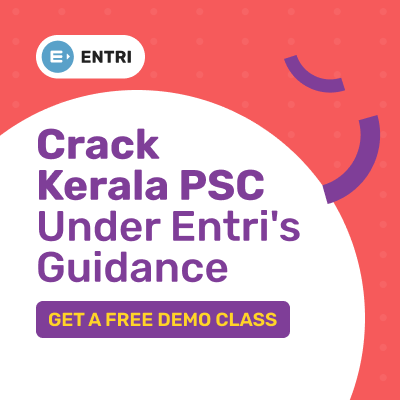Table of Contents
The Kerala Public Service Commission has earlier invited online applications for the post of Analyst Grade 3 (Drugs Control Department). Further, the commission will soon release the examination dates for the above mentioned post. All the aspiring candidates must surely go through the syllabus before starting to prepare for the examination. In this article, read about Kerala PSC Analyst Grade 3 (Drugs Control Department) Syllabus 2020 in detail.
Attempt Free Current Affairs Mock Test
Kerala PSC Analyst Grade 3 Syllabus (Drugs Control Department)
Firstly, we shall divide the Analyst Grade 3 (DCD) Syllabus into 10 different modules. They are listed below:
- Inorganic Chemistry- Pharmaceutical Chemistry I
- Pharmaceutical Analysis I
- Chemistry of Natural Products- Pharmaceutical Chemistry II
- Pharmaceutical Jurisprudence
- Pharmacognosy
- Pharmacology-I & Biopharmaceutics
- Pharmacology-I &Clinical Pharmacy
- Medicinal Chemistry- Pharmaceutical Chemistry III
- Pharmaceutical Analysis II
- Pharmaceutics and Microbiology
Let us now have a detailed look at the different modules one by one.
Pharmaceutical Chemistry I (Inorganic Chemistry)
- Introduction to Pharmacopoeia and monograph
- Quality Control and test for purity.
- Study of pharmaceutically important compounds
- Theory of co-ordination compounds with special reference to application in Pharmacy and Pharmaceutical analysis
- Test for purity of swelling property of bentonite, Acid neutralizing capacity of aluminium hydroxide gel, etc.
- Determination of specific rotation of a compound, refractive index and partition co-efficient.
Pharmaceutical Analysis I
- Neutralization titrations
- Non-aqueous titrations
- Precipitation titrations
- Complexometric titrations
- Oxidation – reduction titrations
- Gravimetric analysis
- Miscellaneous methods
Pharmaceutical Chemistry II (Chemistry of Natural Products)
- Carbohydrates, Proteins and Amino acids
- Terpenoids, Alkaloids and Glycosides
- Vitamins and Purines
- Fats and Oils
- Steroids
- Estimation
Pharmaceutical Jurisprudence
- Introduction, Definition and scope of Forensic pharmacy. Pharmaceutical legislation in India and historical developments.
- A detailed study (a) Pharmacy Act. (b) Drugs and Cosmetics Act. (c) Medicinal and Toilet preparations (Excise Duties) Act and Rules. (d) Narcotic Drugs and Psychotropic Substances Act. (e) Drugs and Magic Remedies (Objectionable Advertisements) Act.
- A brief study of (a) Drugs Prices Control Order. (b) A.I.C.T.E. Act. (c) Patents Act. (d) Trade and Merchandise marks Act. (e) States Shops and Establishments Act. (f) Minimum Wages Act. (g) Factories Act. (h) Prevention of Food Adulteration Act and Rules. (i) Prevention of Cruelty to Animals Act. (j) Medical Termination of Pregnancy Act. (k) The Poisons Act
- Drug tragedies.
Pharmacognosy
- Study of the biological sources and traditional drugs.
- Introduction to alternative systems of medicine.
- Systematic study of source.
- General techniques of biosynthetic studies and basic metabolic pathways.
- Introduction, classification and study of different chromatographic methods and their applications.
- Preparation of the extracts and various extraction techniques including supper critical fluid extraction.
- Marine pharmacognosy, novel medicinal agents from marine sources.
- Plant allergens and allergenic substances. Classification and preparation of allergenic extracts.
- Biological sources, preparation, identification tests and uses of the following enzymes: Diastase, Papain, Bromalein, Maltase
- Protein containing drugs: Gelatin, Collagen, spirulina
- Introduction to herbal drug technology. Development and evaluation of herbal formulations.
- Adulteration and evaluation of crude drugs.
- Herbaceous health foods.
- Herbal cosmetics – including classifications with examples.
- Patenting of Herbal Drugs
- Estimation of phytopharmaceuticals : Atropine, Quinine, Curcumine, Aloin, Caffeine.
- Physicochemical evaluation of crude drugs and formulations including ash values, extractive values, refractive index.
Attempt Free Kerala PSC Previous Year Question Paper
Pharmacology-I & Biopharmaceutics
Pharmacology
- General Pharmacology.
- Drug dose & dosage: Fixed dose combination -Advantages & disadvantages.
- Rational use of medications.
- Pharmacogenetic variation in drug action
- Principles of Toxicology.
- Pharmacology of drugs in special groups- Pregnancy, lactation pediatrics and elderly.
- Chrono pharmacology
- Pharmacology of different classes of drugs.
Biopharmaceutics
- Biotransformation – phase I and phase II reactions
- Compartment models- Definition, One compartment model- IV Bolus, IV Infusion, Extra Vascular administration.
- Non-linear pharmacokinetics- One compartment model IV Bolus administration, Michaelis Menten equation.
- Measurement of Bioavailability- Cmax, t max, AUC. Design of single dose Bioequivalent study, dissolution and disintegration
Pharmacology-I & Clinical Pharmacy
Pharmacology
- Measurements in pharmacology
- Drug discovery and new drug development
- Pharmacology of certain groups of drugs
- Antimicrobial drugs & Chemotherapy
- Immuno pharmacology.
Clinical Pharmacy
- Drug & Poison information services
- Clinical pharmacokinetics & individualization of drug therapy
- Adverse drug reactions: Detection, monitoring & reporting of ADRs.
- Definition and implications of Evidence based medicine, Practice based research & laboratory based research
- Preparation of drug profiles, leaflets, packaging inserts.
- Drug interactions: clinical significance, potentially dangerous interactions, role of pharmacist in identification, assessment and ways to overcome interactions.
- Concept of Essential drugs and rational drug use.
- Clinical management
Pharmaceutical Chemistry III (Medicinal Chemistry)
- Basic Concepts and Applications of Prodrug Design
- Study of Classification, Mechanism of Action, uses and Structure of selected drugs
Pharmaceutical Analysis II
- Chromatography
- Potentiometric titrations: Introduction, Electrochemical cells, half-cells, electrodes, measurement of potential and application in pharmaceutical analysis
- Conductometric titrations: Basic concepts, different types of conductometric titrations, apparatus used and applications in Pharmaceutical Analysis.
- Thermal Analysis: Basic Concepts and Applications in Pharmaceutical Analysis.
- Polarography, Amperometry and Electrophoresis.
- Turbidimetry and Nephelometry
- Theoretical aspects, basic instrumentation, elements of interpretation of spectra.
Pharmaceutics and Microbiology
Pharmaceutics
- Tablets Characteristics, advantages and disadvantages. Types of tablets, excipients, granulation methods and machinery involved.
- Tablet coating: Types-sugar coating, film coating, compression coating, electrostatic and enteric coating.
- Capsules: Advantages and disadvantages of capsules.
- Sterile products
- Pharmaceutical aerosols: components, propellants, containers, valves and actuators, types of aerosol systems, manufacture, quality control, pharmaceutical applications.
- Surgical ligatures and sutures, types, Catgut-preparation and standardization. Cotton-absorbent and non-absorbent
- Blood products and plasma.
- Packaging materials. Types of glasses and plastics employed for packing and their evaluation.
- Introduction, fundamentals of cosmetic science.
- Controlled drug delivery systems
- Process validation and performance evaluation.
- Pharmaceutical calculations.
Microbiology
- Introduction to the scope of microbiology, Microscopy-compound, dark field, phase contrast, UV, fluorescence and electron microscopy.
- Classification of microbes and bacterial taxonomy.
- Structure of bacterial cell.
- Bacterial Nutrition, cultivation of bacteria.
- Immunity
- Control of microbes by Physical and Chemical methods
- Antibiotics: Antimicrobial Spectrum and methods used for standardization, Fermentation technology.
Ace your Kerala PSC Exam Preparations with Entri!
Kerala PSC Analyst Grade 3 (Drugs Control Department) Syllabus 2020 Download
1: Which Year First Assembly Election was held in Kerala?
Click here to download the complete syllabus of Kerala PSC Analyst Grade 3 (Drugs Control Department) Examination in PDF format.
Kerala PSC Analyst Grade 3 Syllabus
Hope this article was helpful to you. Make your learning experience a happy and memorable one with us. We wish you all the best for your upcoming examinations. With Entri by your side your dream job will now be a reality!
Why Learn from Entri:
- Top notch & experienced tutors to learn from.
- Mock tests in various regional languages available.
- Fully loaded Current Affairs Section
And lots more! Subscribe Today!











